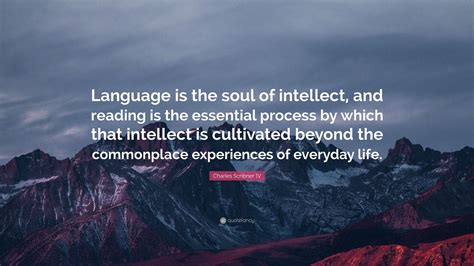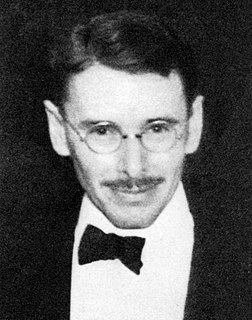A Quote by William Hazlitt
Language, if it throws a veil over our ideas, adds a softness and refinement to them, like that which the atmosphere gives to naked objects.
Related Quotes
Whenever education and refinement carry us away from the common people, they are growing towards selfishness, which is the monster evil of the world. That is true cultivation which gives us sympathy with every form of human life, and enables us to work most successfully for its advancement. Refinement that carries us away from our fellow people is not God's refinement.
We sift reality through screens composed of ideas . (And such ideas have their roots in older ideas.) Such idea systems are necessarily limited by language , by the ways we can describe them. That is to say: language cuts the grooves in which our thoughts move. If we seek new validity forms (other laws and other orders) we must step outside language.
Men of superior vivacity and wit, when they take a wrong turn, are generally worse than other men: because wit, consisting in a lively representation of ideas assembled together, gives every sensible object those heightening touches, and that striking imagery, which is unknown to men of slower apprehensions: wit being to sensible objects, what light is to bodies; it does not merely show them as they are in themselves: it gives an adventitious colour, which is not a property inherent in them: it lends them beauties which are not their own.
Beyond the formative effects of reading on the individuals composing society, the fact that they have read the same books gives them experiences and ideas in common. These constitute a kind of shorthand of ideas which helps make communication quicker and more efficient. That is what we mean when we say figuratively of another person, We speak the same language.
The acts of the mind, wherein it exerts its power over simple ideas, are chiefly these three: 1. Combining several simple ideas into one compound one, and thus all complex ideas are made. 2. The second is bringing two ideas, whether simple or complex, together, and setting them by one another so as to take a view of them at once, without uniting them into one, by which it gets all its ideas of relations. 3. The third is separating them from all other ideas that accompany them in their real existence: this is called abstraction, and thus all its general ideas are made.
It seems to me that the thing that makes the theater worthwhile is the fact that it attracts so many people with ideas who are constantly trying to share them with the public. Real art is illumination. It gives a man an idea he never had before or lights up ideas that were formless or only lurking in the shadows of his mind. It adds stature to life.
I earnestly wish to point out in what true dignity and human happiness consists. I wish to persuade women to endeavor to acquire strength, both of mind and body, and to convince them that the soft phrases, susceptibility of heart, delicacy of sentiment, and refinement of taste, are almost synonymous with epithets of weakness, and that those beings are only the objects of pity, and that kind of love which has been termed its sister, will soon become objects of contempt.




































